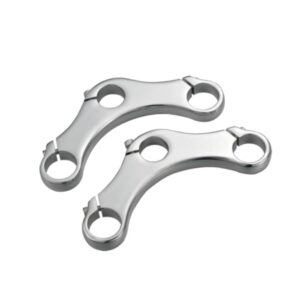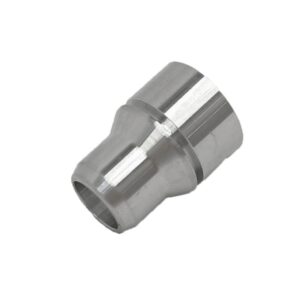In the competitive field of plastic mold manufacturing, achieving high-quality and efficient production requires a combination of advanced materials and innovative techniques. One such approach that has gained significant traction is the use of precision aluminum machining. This method provides numerous benefits, from improved mold performance and reduced production time to cost savings and increased flexibility in design. As a pioneer in mold manufacturing, MINGYU Tech leverages the power of precision aluminum machining to deliver superior mold solutions for a diverse range of industries. In this article, we explore the impact of precision aluminum machining on plastic mold manufacturing and highlight recent industry trends that are shaping the future of this technology.
The Role of Aluminum in Plastic Mold Manufacturing
Traditionally, steel has been the material of choice for mold manufacturing due to its durability and heat resistance. However, in recent years, aluminum has emerged as a viable alternative, particularly for applications that require rapid prototyping, short-run production, or complex design elements. Aluminum offers several key advantages, including lightweight properties, high thermal conductivity, and ease of machining.
Aluminum molds are commonly used in the injection molding of plastics because they can withstand the high pressures involved in the process while providing excellent heat dissipation. This allows for shorter cycle times, reduced cooling periods, and enhanced mold performance. Moreover, aluminum’s malleability makes it easier to machine intricate geometries, enabling manufacturers to create complex molds with precise tolerances.

Advantages of Precision Aluminum Machining in Mold Manufacturing
- Faster Machining and Production Time
One of the primary benefits of using aluminum for mold manufacturing is its machinability. Aluminum is easier to cut, shape, and drill compared to steel, resulting in significantly faster machining times. This enables manufacturers like MINGYU Tech to produce molds more quickly, reducing lead times and accelerating the overall production process.
The speed at which aluminum can be machined also allows for rapid prototyping, making it ideal for situations where quick turnaround times are essential. This is particularly beneficial in industries such as consumer electronics, where product life cycles are short, and getting products to market quickly is critical.
- Improved Thermal Conductivity
Aluminum’s high thermal conductivity is a key advantage in mold manufacturing. The material’s ability to conduct heat efficiently ensures that the mold cools down faster between cycles, which in turn reduces overall cycle times. This faster cooling translates into higher productivity and lower energy consumption, making it an eco-friendly option for manufacturers.
- Lightweight and Easy Handling
Aluminum’s lightweight nature makes it easier to handle and transport, reducing the risk of damage during mold installation or maintenance. This characteristic also simplifies the process of making adjustments or modifications to the mold, offering greater flexibility to manufacturers looking to refine their designs.
- Enhanced Surface Finish
Precision aluminum machining enables manufacturers to achieve smooth surface finishes on molds, which is essential for producing high-quality plastic parts. The material’s natural smoothness and resistance to corrosion contribute to superior surface quality, eliminating the need for additional finishing processes and reducing costs.
- Cost Efficiency
Aluminum is generally more cost-effective than steel, both in terms of material cost and machining expenses. The faster machining times and reduced need for secondary finishing processes translate into lower overall production costs. This cost efficiency makes aluminum an attractive choice for small and medium-sized production runs or projects that require frequent mold modifications.
Limitations and Considerations
While precision aluminum machining offers numerous benefits, it’s essential to consider its limitations as well. Aluminum molds may not be as durable as steel molds and may wear out more quickly in high-volume or high-temperature production environments. Therefore, they are best suited for lower-volume production runs, rapid prototyping, or applications where cycle time reduction is prioritized over long-term durability.
Additionally, the choice between aluminum and steel should be based on the specific requirements of the project, including the type of plastic being molded, the complexity of the design, and the expected production volume.
How MINGYU Tech Leverages Precision Aluminum Machining
MINGYU Tech has long been at the forefront of mold manufacturing, utilizing state-of-the-art precision aluminum machining techniques to deliver top-quality molds that meet the stringent demands of various industries. The company’s expertise in working with aluminum enables it to offer customized mold solutions that are both cost-effective and high-performing.
MINGYU Tech’s advanced CNC machining centers and skilled engineering team ensure that each mold is crafted with the utmost precision and attention to detail. The company’s commitment to innovation and quality has earned it a reputation as a trusted partner for businesses seeking reliable mold solutions for applications ranging from automotive parts to medical devices.
Industry Trends: The Growing Adoption of Aluminum in Mold Manufacturing
The global mold manufacturing industry is experiencing a shift towards the increased use of aluminum, driven by the need for faster production cycles and cost efficiency. According to a recent report by Grand View Research, the global mold manufacturing market size is expected to reach USD 45.5 billion by 2028, growing at a compound annual growth rate (CAGR) of 3.6% from 2021 to 2028. This growth is being fueled by the rising demand for lightweight and high-precision molds across various sectors, including automotive, consumer goods, and electronics.
One significant trend is the adoption of hybrid molds, which combine the benefits of both aluminum and steel. These hybrid molds use aluminum for non-critical areas to reduce weight and machining time, while employing steel for critical sections that require enhanced strength and durability. This approach allows manufacturers to achieve a balance between cost, performance, and longevity.
Another emerging trend is the integration of automation and digital technologies in mold design and production. Advanced CAD/CAM software, 3D printing, and AI-driven machining processes are helping manufacturers optimize mold designs, reduce errors, and improve overall efficiency.

Conclusion
Precision aluminum machining is revolutionizing the plastic mold manufacturing industry by providing faster production times, cost efficiency, and improved mold performance. Companies like MINGYU Tech
are leveraging this technology to deliver high-quality, customized molds that cater to the evolving needs of their clients. As the demand for lightweight and high-precision molds continues to grow, the use of aluminum is set to become even more prevalent, driving innovation and excellence in mold manufacturing. With a focus on quality and precision, MINGYU Tech is well-positioned to lead the way in this exciting field, offering advanced solutions that help manufacturers stay ahead of the competition.





